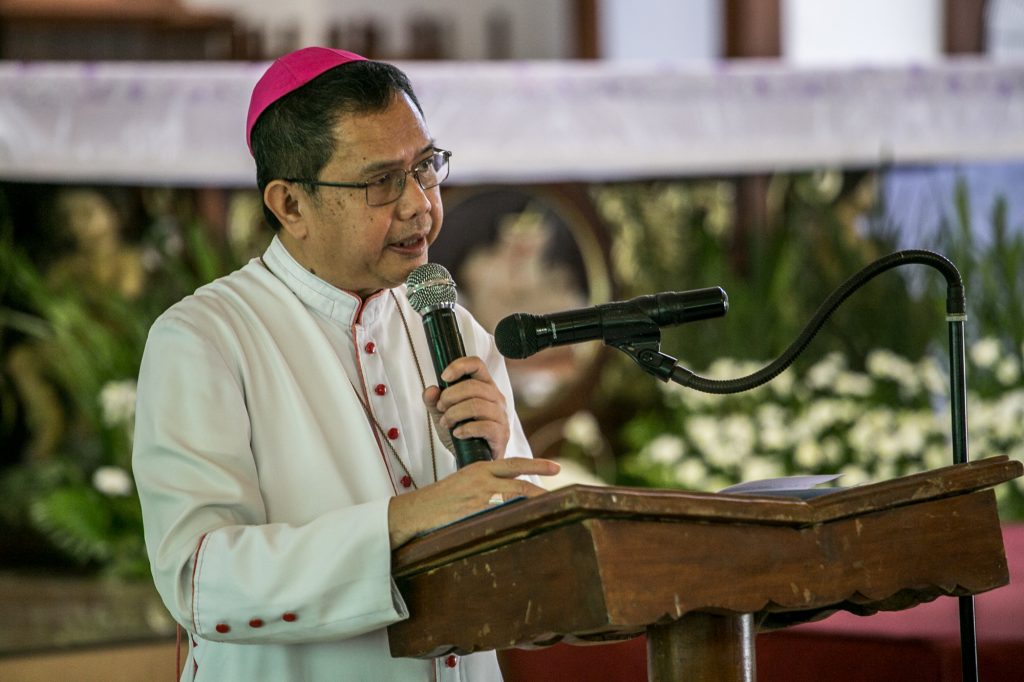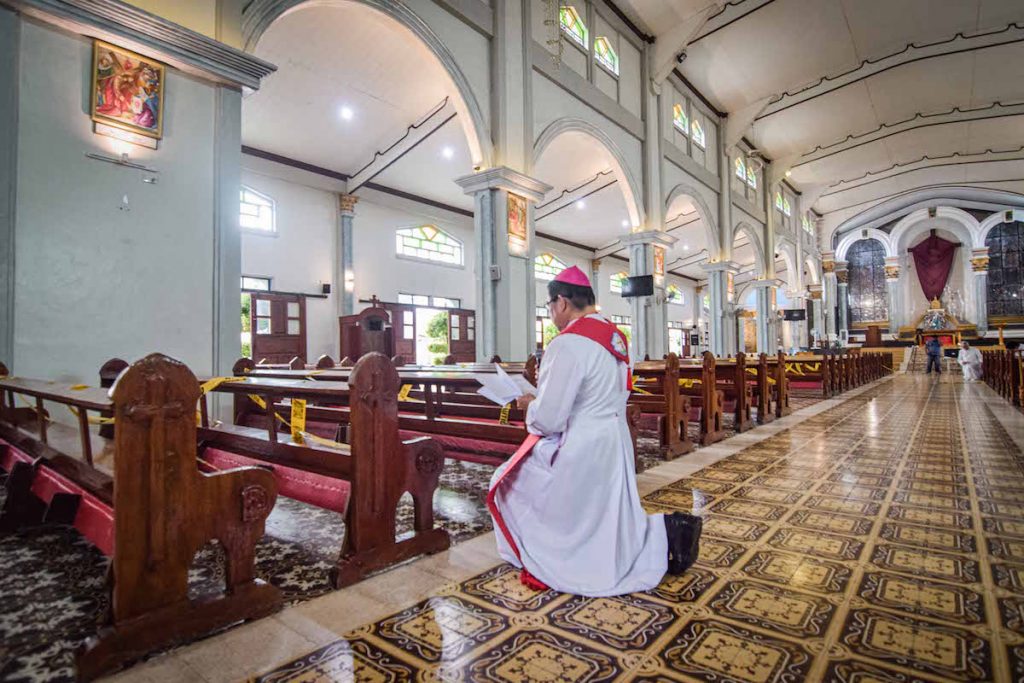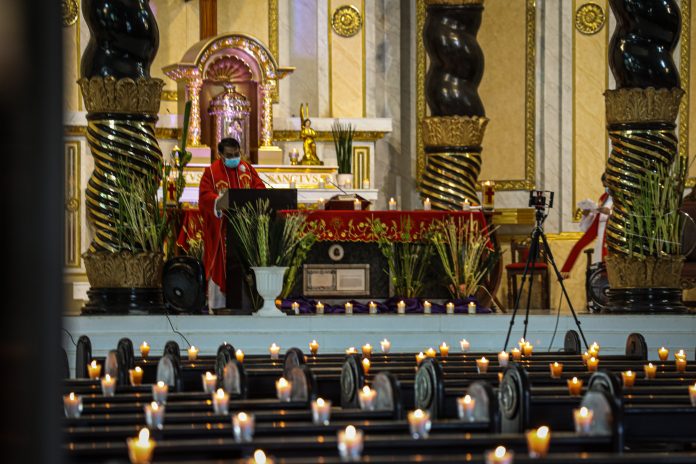A Catholic bishop in the northern Philippine urged the faithful to “spread messages of hope and compassion” amid the rising number of new coronavirus cases in the country.
“It is good to note that this present pandemic has highlighted to us the great importance of … new evangelization,” said Bishop Roberto Mallari of San Jose in Nueva Ecija province.
The Philippines’ Department of Health recorded 10,016 new coronavirus infections on Monday, March 29, the country’s third record daily spike in cases over the past five days.
The department said total confirmed cases had increased to 731,894, while confirmed deaths reached 13,186, including 16 more casualties on Monday.
Most of the new cases are in the congested national capital region, a conglomeration of 16 cities and home to at least 13 million people.
Intensive care and isolation bed capacity in hospitals have already reached critical levels, government data showed.
Bishop Mallari, chairman of the Office for Social Communication of the Federation of Asian Bishops’ Conferences, said Christians must “fill the web with … the message of Christ” during difficult times.
He said these kinds of online content will help to “strengthen one another” amid the challenges and pain brought about by the global health crisis.
The bishop urged netizens to “like, share, and comment” contents posted by various social communication ministries in the parishes.

Meanwhile, a Catholic priest said the faithful can already start the traditional “pabasa,” the recitation of the passion of Christ during Holy Week, online.
“Under the circumstances, the traditional ‘pabasa’ could be done by family members of the same household in the confines of their own respective homes,” said Father Melvin Castro.
“That way there would be no unneccesary mass gatherings,” he said, adding that “family prayer and gathering is enforced.”
The “pabasa” is the ritual reading of the Philippine “pasyon,” an epic poem in stanzas of five lines of eight syllables, each interwoven with a dramatic theme recounting the passion, death, and resurrection of Jesus Christ.
It is said to be a Christian adaptation of a pre-Hispanic Filipino custom of chanting epic poems.
A number of parishes in the Philippine capital started the “pabasa” on Holy Monday as Holy Week liturgical activities of churches were only being streamed online after authorities declared a lockdown of the capital due to the rising number of COVID-19 cases.

The Archdiocesan Liturgical Commission of Manila has earlier released a guide on “Family celebrations of Holy Week and Easter Triduum at home.”
“We go back to the experience of the early Church when Christians gather to worship at home,” read the guidelines released by the commission.
“This is an opportune time to encourage families to pray at home,” it added, saying that the head of the family should lead the household in prayer.
The guidelines said the faithful can follow the live streaming of church celebrations with some suggestions of rituals the members of the family can do at home:
On Holy Thursday’s Evening Mass of the Lord’s Supper
- After following the celebration online, the head of the family washes the feet of family members. After which they pray for each other so that the family will be strengthened and united by the spirit of compassion and service.
- Family members are encouraged to gather the money or goods, which were fruits of their Lenten penance. They can send this to their parish, to any charitable institution, or to a poor family in the community.
- They can share a family meal.
On Good Friday
- The heart of the celebration is the Passion Narrative. The members of the family are invited to listen intently to the proclamation and spend time to reflect and even share their reflections to each other.
- Families can venerate the crucifix at home.
- Anytime during the day, families are encouraged to pray the Stations of the Cross.
On Holy Saturday
- Family members gather before or after breakfast to pray the morning prayer with the atmosphere of keeping vigil at the tomb of Christ.
- They are encouraged to maintain silence and reflection while awaiting the Easter feast.
Easter Vigil
- Prepare a candle that could serve as the family Easter candle and a reminder of the triumph of the Paschal Mystery in any human struggle of crisis.
- Family members participate in the Renewal of Baptismal Promises. After the renewal, as a reminder of Baptism, they can trace the sign of the cross at each other’s forehead.
- A family meal is shared after the celebration.
On Easter Sunday
- The family Easter candle is lit.
- The family members participate in the Renewal of Baptismal Promises. After the renewal, as a reminder of Baptism, they can trace the sign of the cross at each other’s forehead.
– with a report from Mark Saludes









